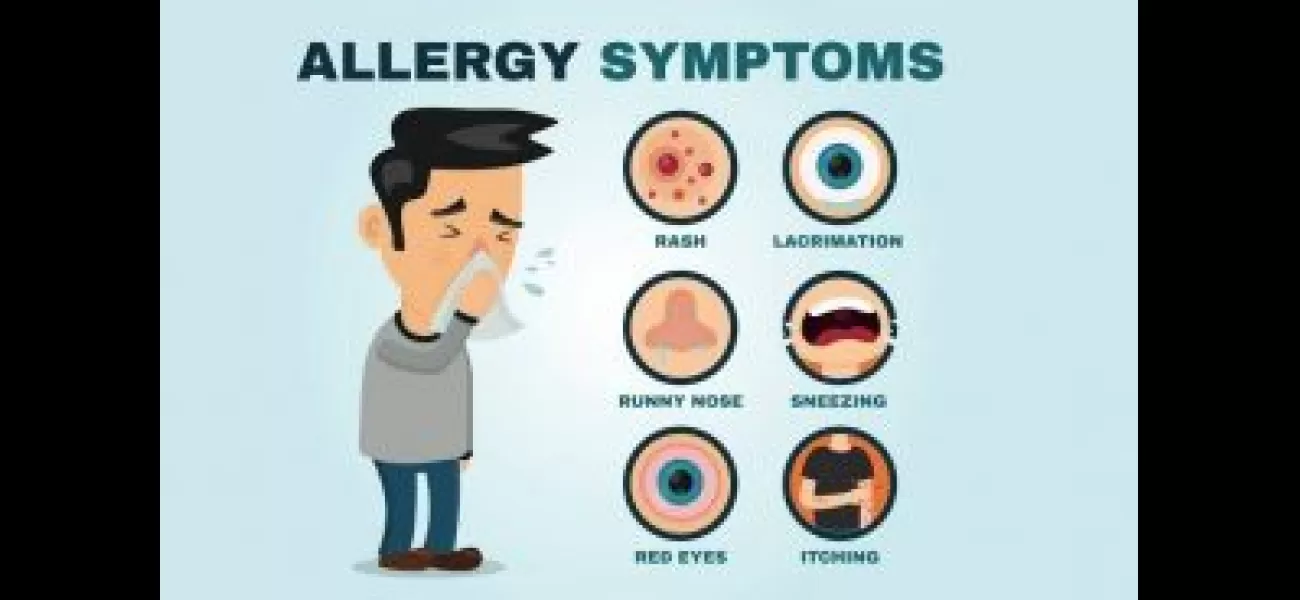Tips for managing allergies during certain times of the year.
Seasonal allergies, also called hay fever or allergic rhinitis, occur in certain seasons and can affect your health throughout the year, depending on where you live. Allergens like dust, pollen, pollution, and mold can cause symptoms. They are less common in winter, but can still occur.
August 17th 2024.

Seasonal allergies, also known as hay fever or allergic rhinitis, can be a nuisance and affect your health and well-being throughout the year. Depending on your location, these allergies can occur in specific seasons due to common triggers such as dust, pollen, air pollution, and mold. While they may be less frequent in the winter, they can still persist and cause discomfort. The timing of allergy symptoms can vary depending on the release of pollen from different plants, and indoor allergens like pet dander or mold can also contribute to reactions. In this article, we will explore the symptoms of seasonal allergies and effective ways to manage them.
Symptoms of Seasonal Allergies
Seasonal allergies can cause a range of symptoms, including coughing, a runny or congested nose, itching in the nose or throat, sneezing, watery or itchy eyes, and mucus dripping down the throat. These allergies can also leave you feeling tired due to poor sleep caused by nasal congestion and may even result in a bruised-looking area under your eyes.
Tips to Manage Seasonal Allergies
If you experience seasonal allergies, there are several steps you can take to manage your symptoms and minimize exposure to allergens. First and foremost, it's essential to avoid activities that can stir up allergens, such as lawn mowing and gardening. On windy and dry days, it's best to stay indoors, and after rainfall, which clears pollen from the air, it's safer to go outside. Additionally, it's crucial to change your clothes and shower after being outdoors to remove pollen from your skin and hair. Consider wearing a face mask when doing outdoor chores, and avoid hanging laundry outside as pollen can cling to sheets and towels.
Keeping Indoor Air Clean
To prevent seasonal allergies from being triggered, it's essential to keep indoor air free from allergens. Using air conditioning in your home and car can help, as well as using a dehumidifier to keep indoor air dry. For homes with forced air heating or air conditioning, installing high-efficiency filters and regularly maintaining them can also be beneficial. Frequent floor cleaning with a vacuum equipped with a high-efficiency particulate air filter can also help. In some cases, a portable HEPA filter in your bedroom can provide relief.
Over-the-counter Medicines
Many over-the-counter medications can provide relief from allergy symptoms. These include oral antihistamines, which can alleviate sneezing, runny nose, itching, and watery eyes. One popular and effective option is the cetirizine tablet, which provides quick relief and offers great value for its price. Nasal sprays like fluticasone, triamcinolone, and budesonide can target nasal symptoms, and cromolyn sodium nasal spray can block immune responses causing allergy symptoms. Oral decongestants, such as pseudoephedrine, can offer temporary relief from nasal congestion, and some allergy medications combine decongestants with antihistamines. Always consult your healthcare provider before using decongestants for allergies.
Consult a Doctor
While avoiding allergens and using nonprescription medications can be effective for many people, it's essential to seek medical advice if your seasonal allergies persist. Your healthcare provider may suggest skin or blood tests to identify the specific allergens causing your symptoms. This information can help tailor a treatment plan that best suits your needs, which may include allergy shots or immunotherapy. These treatments involve regular injections with small amounts of allergens to gradually reduce the immune system's response. In some cases, treatment may also be administered as tablets placed under the tongue.
Managing seasonal allergies requires a combination of strategies, including avoiding triggers, keeping indoor air clean, and using appropriate medications. Over-the-counter medicines like cetirizine tablets can provide effective relief from symptoms, making it easier to cope with the discomfort of allergies. However, if symptoms persist or worsen, consulting a healthcare provider for personalized advice and treatment options, such as allergy testing or immunotherapy, is essential. By taking proactive steps, you can significantly reduce the impact of seasonal allergies on your daily life and overall well-being.
Symptoms of Seasonal Allergies
Seasonal allergies can cause a range of symptoms, including coughing, a runny or congested nose, itching in the nose or throat, sneezing, watery or itchy eyes, and mucus dripping down the throat. These allergies can also leave you feeling tired due to poor sleep caused by nasal congestion and may even result in a bruised-looking area under your eyes.
Tips to Manage Seasonal Allergies
If you experience seasonal allergies, there are several steps you can take to manage your symptoms and minimize exposure to allergens. First and foremost, it's essential to avoid activities that can stir up allergens, such as lawn mowing and gardening. On windy and dry days, it's best to stay indoors, and after rainfall, which clears pollen from the air, it's safer to go outside. Additionally, it's crucial to change your clothes and shower after being outdoors to remove pollen from your skin and hair. Consider wearing a face mask when doing outdoor chores, and avoid hanging laundry outside as pollen can cling to sheets and towels.
Keeping Indoor Air Clean
To prevent seasonal allergies from being triggered, it's essential to keep indoor air free from allergens. Using air conditioning in your home and car can help, as well as using a dehumidifier to keep indoor air dry. For homes with forced air heating or air conditioning, installing high-efficiency filters and regularly maintaining them can also be beneficial. Frequent floor cleaning with a vacuum equipped with a high-efficiency particulate air filter can also help. In some cases, a portable HEPA filter in your bedroom can provide relief.
Over-the-counter Medicines
Many over-the-counter medications can provide relief from allergy symptoms. These include oral antihistamines, which can alleviate sneezing, runny nose, itching, and watery eyes. One popular and effective option is the cetirizine tablet, which provides quick relief and offers great value for its price. Nasal sprays like fluticasone, triamcinolone, and budesonide can target nasal symptoms, and cromolyn sodium nasal spray can block immune responses causing allergy symptoms. Oral decongestants, such as pseudoephedrine, can offer temporary relief from nasal congestion, and some allergy medications combine decongestants with antihistamines. Always consult your healthcare provider before using decongestants for allergies.
Consult a Doctor
While avoiding allergens and using nonprescription medications can be effective for many people, it's essential to seek medical advice if your seasonal allergies persist. Your healthcare provider may suggest skin or blood tests to identify the specific allergens causing your symptoms. This information can help tailor a treatment plan that best suits your needs, which may include allergy shots or immunotherapy. These treatments involve regular injections with small amounts of allergens to gradually reduce the immune system's response. In some cases, treatment may also be administered as tablets placed under the tongue.
Managing seasonal allergies requires a combination of strategies, including avoiding triggers, keeping indoor air clean, and using appropriate medications. Over-the-counter medicines like cetirizine tablets can provide effective relief from symptoms, making it easier to cope with the discomfort of allergies. However, if symptoms persist or worsen, consulting a healthcare provider for personalized advice and treatment options, such as allergy testing or immunotherapy, is essential. By taking proactive steps, you can significantly reduce the impact of seasonal allergies on your daily life and overall well-being.
[This article has been trending online recently and has been generated with AI. Your feed is customized.]
[Generative AI is experimental.]
0
0
Submit Comment





